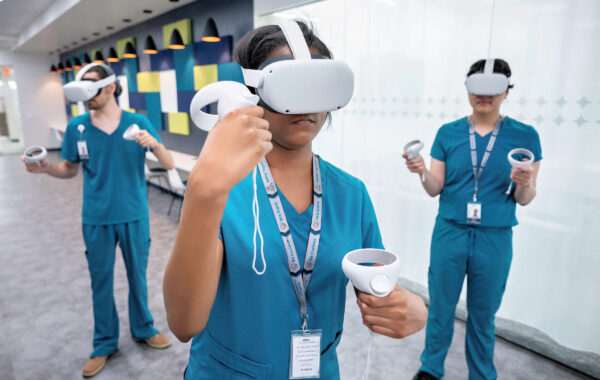In the current complex healthcare atmosphere, effective scientific management is critical to giving high-quality individual care and driving organizational success. A v is becoming significantly essential for nurses aspiring to take on control functions within scientific settings. This advanced training equips nursing professionals with the knowledge, skills, and confidence needed to manage groups, impact healthcare supply, and apply impressive solutions.

First and foremost, a Owners in Nursing fosters sophisticated scientific knowledge and critical thinking. Leaders in healthcare must make timely decisions that affect individual outcomes, often in fast-paced or complicated situations. Graduate-level nursing applications emphasize evidence-based exercise, permitting future leaders to include the most recent research in to clinical decision-making. This approach not just promotes individual security but in addition supports constant quality development across healthcare systems.
An MSN program offers nurses with greater scientific understanding and advanced skills that exceed the foundational nursing education. This improved expertise allows nurse leaders to create informed decisions in patient care, teacher junior team, and apply evidence-based practices. Having this powerful clinical base is important when overseeing care groups and improving healthcare outcomes.
Furthermore, a Masters amount cultivates powerful authority and management abilities. Nursing leaders are responsible for guiding interdisciplinary groups, managing assets, and managing attention plans. Through coursework focused on organizational behavior, healthcare plan, and financial administration, master's programs make nurses to navigate complicated healthcare settings effectively. That knowledge empowers them to advocate for team needs, improve workplace tradition, and apply proper initiatives that align with institutional goals.
Conversation skills are yet another vital element of advanced nursing education. Scientific leaders should liaise between medical team, patients, and administrative bodies, ensuring apparent and thoughtful communication. Graduate programs give options to improve these skills through presentations, collaborative jobs, and control practicums. Enhanced communication abilities support leaders handle issues, aid group venture, and promote patient-centered attention practices.

Furthermore, obtaining a Experts in Nursing grows career options and skilled recognition. Many healthcare companies now require or choose advanced levels for authority jobs such as nurse managers, scientific coordinators, or directors of nursing. A graduate amount signals a responsibility to skilled development and jobs nurses as credible professionals of their fields. That usually leads to better influence in surrounding plans and techniques that improve healthcare delivery.
The advantages of a Owners in Nursing expand beyond specific job advancement. By planning nurses for authority functions, these applications donate to tougher healthcare systems overall. Successful nurse leaders travel improvements in individual outcomes, team maintenance, and detailed efficiency. Their expertise supports the integration of engineering, adherence to regulatory requirements, and responsiveness to growing patient needs.
In summary, a Professionals in Nursing degree is required for those seeking scientific management roles. The sophisticated education increases critical considering, control, and communication skills, while also starting gates to greater career advancement. For nurses focused on making a significant affect within healthcare agencies, pursuing a graduate stage is a proper and gratifying step toward control excellence.
